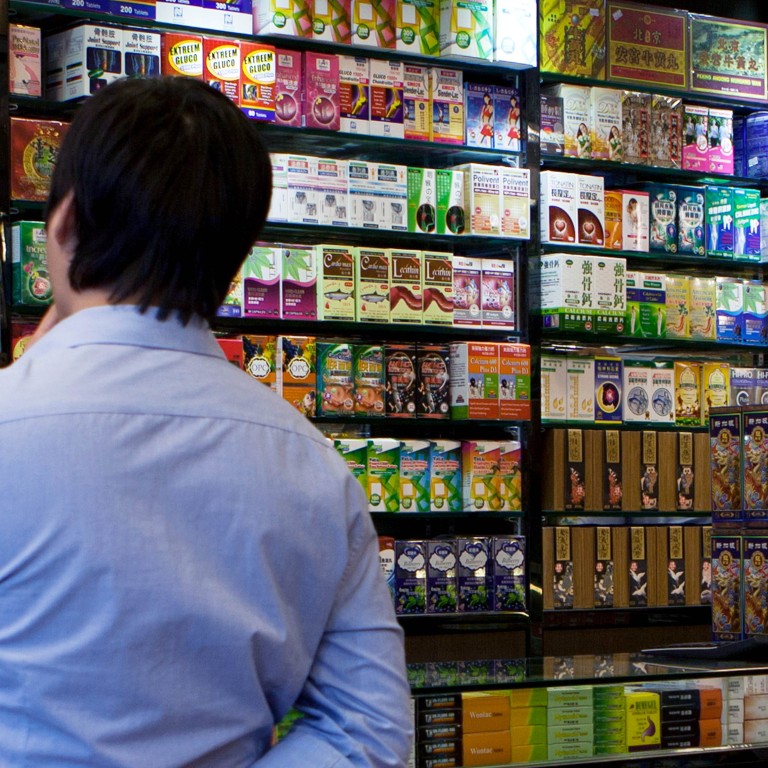
China detains 1,300 people suspected of making and selling fake drugs
Mainland police have rounded up more than 1,300 suspects nationwide for producing and selling fake medicine as part of an intensified government crackdown, state media reported.
Mainland police have rounded up more than 1,300 suspects nationwide for producing and selling fake medicine as part of an intensified government crackdown, state media reported.
Authorities seized fake drugs and nine tonnes of raw materials worth over 2.2 billion yuan (HK$2.8 billion), Xinhua said in a dispatch seen yesterday, citing the Ministry of Public Security.
Police have shut down 140 illegal websites and online pharmacies in 29 provinces and major cities since June, Xinhua said without giving details.
The seized fake drugs purported to deal with illnesses ranging from children's cold and flu to heart problems, and had been advertised online.
In July, the China Food and Drug Administration announced a six-month nationwide crackdown on the sale of illegal medicine, piling pressure on a sector already reeling from a bribery investigation at British drug maker GlaxoSmithKline.
Widespread counterfeit drugs and false advertising have been a thorn in the side of mainland regulators for years, and the drug agency has conducted campaigns in the past to crack down.
Prosecutions for producing or selling fake drugs or toxic food jumped to more than 8,000 last year, more than five times the number in 2011, according to a report by the country's top prosecutor in March.
Beijing pledged to clean up the medicine sector following the deaths of at least 149 Americans who took contaminated Chinese supplies of the blood-thinner heparin in 2008.
But the country's complicated and still developing regulatory environment has stymied efforts at tackling the problem, which infuriates mainland consumers, who also express anger at what they see as the high price of legitimate medicine.

